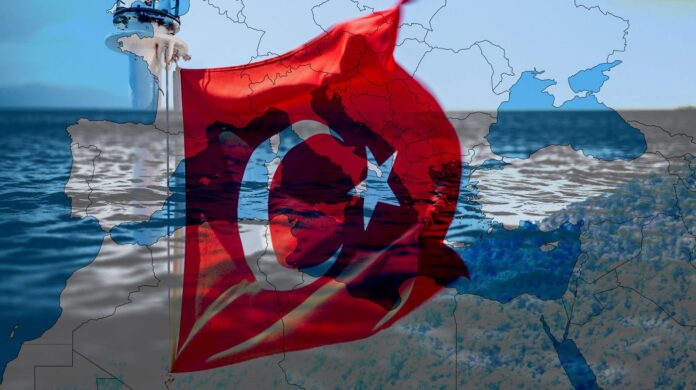Authors: Mustafa Kutlay & Ziya Öniş
Affiliation: City University of London (UK), Koç University (Istanbul)
Organization/Publisher: Third World Quarterly
Date/Place: September 21, 2021/UK
Type of Literature: Analysis
Number of Pages: 19
Link: https://www.tandfonline.com/doi/full/10.1080/01436597.2021.1985449
Keywords: Turkish Foreign Policy, Middle Powers, Liberal International Order
Brief:
The traditional elements for middle power politics are soft power, niche diplomacy, and coalition building. This article explores the unique case of Turkey, which does not fit the above definition of middle power politics. Instead, Turkey’s domestic politics and external dynamics have generated different foreign policy activism, leading to coercive diplomacy and aggressive strategies. Given the geopolitics of Turkey, it has been at the central position of Global Power shifts. It has been torn between its traditional ideology of aligning with the West and looking for new non-Western powers like Russia and China. This article contributes to the scholarship from the political economy perspective. The literature explains how Turkey has emerged as the active regional Middle power. In the AK Party era particularly, Turkey has capitalized on populist dividends and diverged its foreign policy beyond the West and Europe. The author also examines the change in Turkish politics from a soft regional power to a more assertive Central power in a US-led Liberal International order. In addition to that, this article explores how Turkey’s search for Non-western allies like Russia and China has resulted in isolationism in Turkish Foreign Policy. Maintaining an assertive foreign policy along with a weak presidential system in Turkey has generated a sub-optimal equilibrium. But facing isolationism also comes with its costs, especially as Turkey is bound to the West with multi-layered financial and strategic agreements. The author concludes that short term gains by the populist governments have led them to long term losses too.
By: Ruby Clayton, CIGA Research Associate




